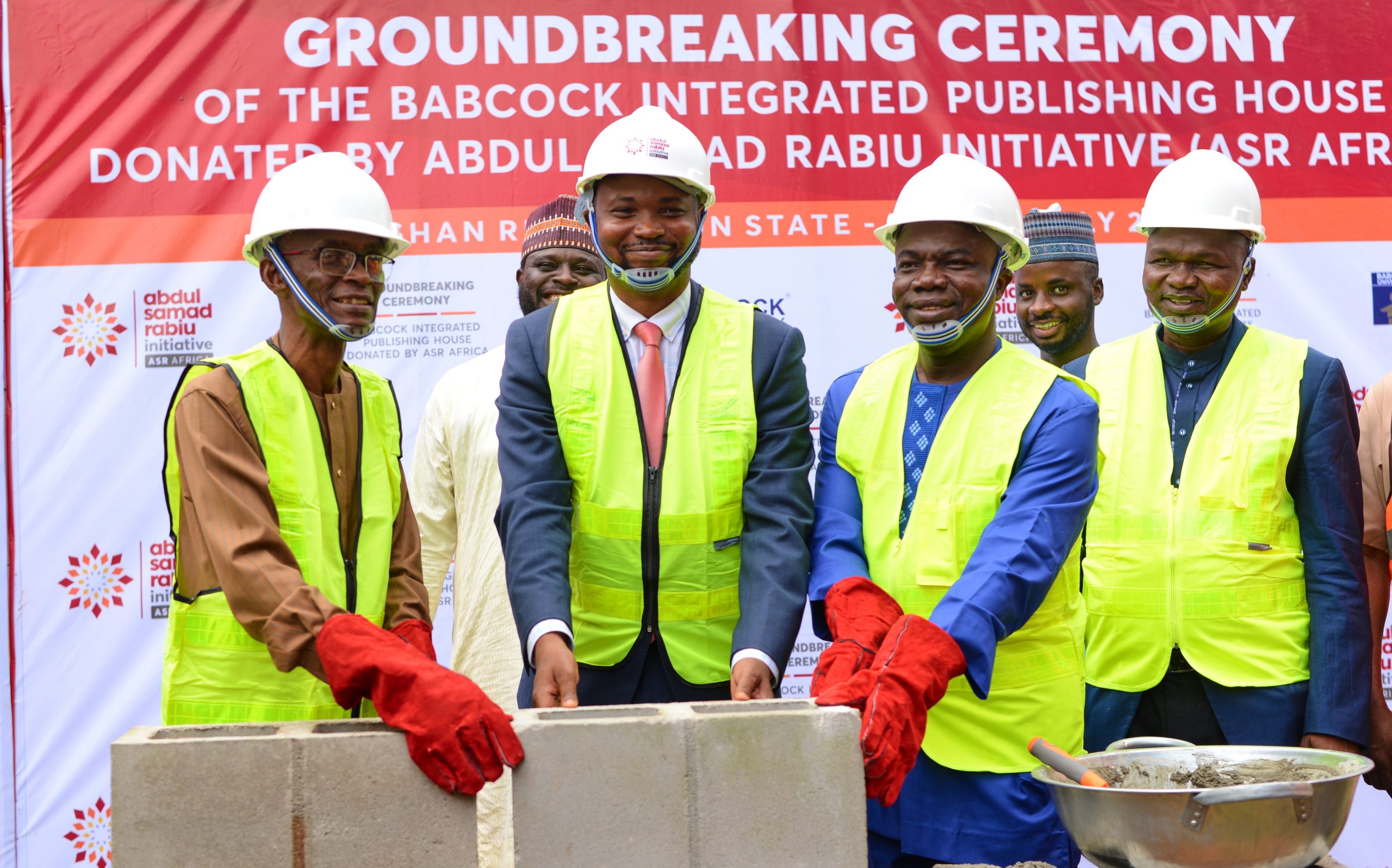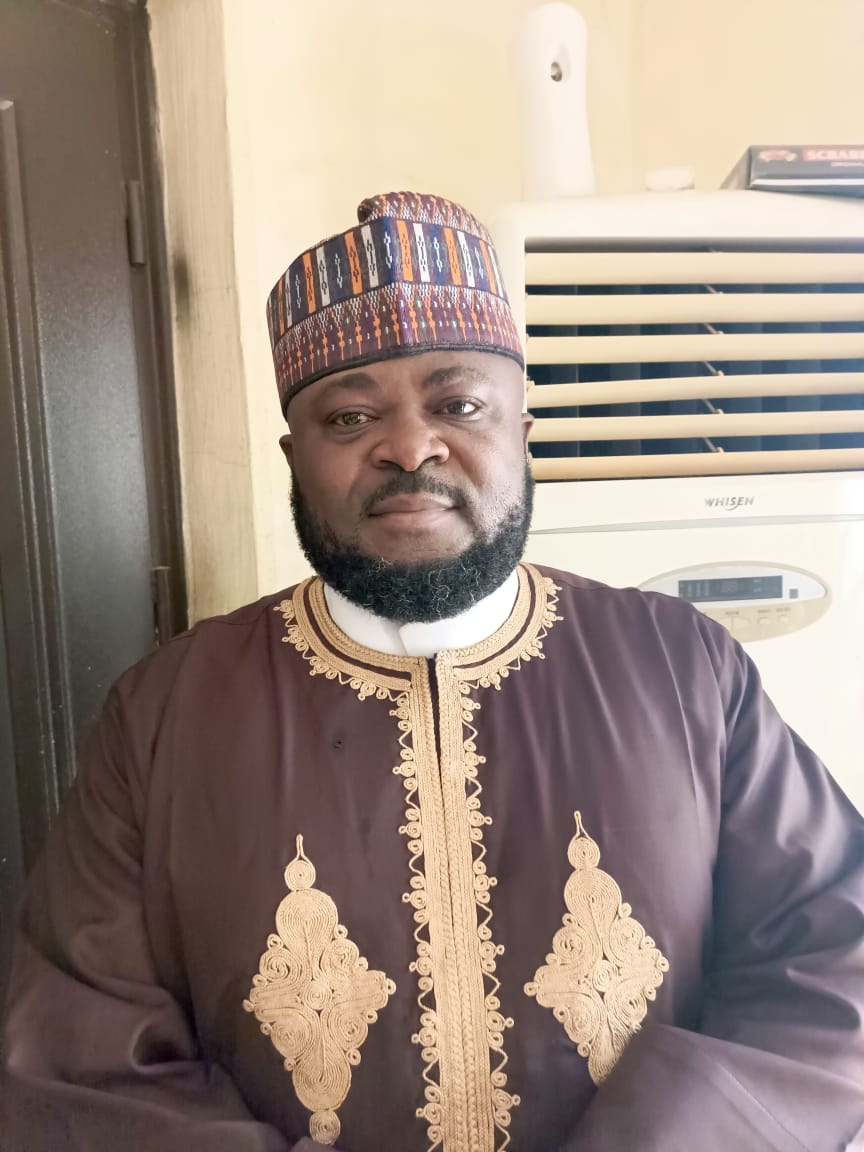Nigeria’s 2024 budget: A milestone as capital expenditure exceeds recurrent for the first time since 1999
The Independent Media and Policy Initiative IMPI has hailed the federal government for allocating more funds to capital expenditure than recurrent in the budget for the first time in the current democratic dispensation.

It said in statement signed by its Chairman Niyi Akinsiju that the decision to buck a 24- year trend with the 2024 budget is a reflection of the government’s sincerity to drive real economic growth.
According to the policy think tank, there is a lot of positives to derive from a N28.7trillion spending plan that seeks to correct years of budget imbalance between capital and recurrent expenditures.
IMPI said: “From an analytical point of view, a budget with higher capital expenditure than recurrent is not only a driver of economic growth, it also impacts individual citizen’s quality and way of life.
“In this regard, we concur with the 2019 submission of the Nigerian Institute of Social and Economic Research (NISER) that the only way to bring about a meaningful influence on the economy is to monitor and evaluate funds that are specially intended for capital expenditure and capital projects.
“It would, however, appear that the disequilibrium between capital and recurrent expenditures has been eventually corrected. For the first time in the current democratic dispensation, the 2024 budget, which is the first in the tenure of the President Bola Tinubu administration, has more funds allocated to capital expenditure than recurrent.
“The budget of N28.777 trillion for the 2024 fiscal year has a recurrent expenditure of N8.7 trillion with N9.9 trillion allocated to capital expenditure.
“Granted that what was passed by the National Assembly was N1.28trillion more than the original N27.5 trillion spending plan, there are indeed good signs and prospects for a budget that is to be financed through a non-debt revenue of N19.6 trillion and a deficit of about N9.18 trillion.
“This is something to build on for an administration that has, since assuming office, embraced economic reforms that are not only courageous in the face of historical resistance to their implementation but are also expected to yield long term transformative benefits to Nigerians”
The policy think tank also lamented how previous administrations had failed to capitalize on two oil booms to boost infrastructural development in the country through higher capital votes.
“Between 2006 and 2013, the national economy grew at an average of between 6 and 8 percent according to World Bank figures yet the increased revenue was channeled into feeding public servants. The recurrent expenditures in those years were always bigger than allocation for capital expenditure.
“Nigeria’s recurrent expenditures which include spending on personnel expenses such as wages and pensions as well as overhead costs and service wide votes have regularly consumed over 65% of total budgets and a huge chunk of revenue.
“We consider it even more depressing that despite the incongruent budgetary imbalance, the country has, since 2009, been recording yearly budget deficits that average N3.3trn in recent years aggravated by oil price volatility and post-COVID economic debilitations in recent years.
“Budget Office data show that between 2011 and 2021, the Federal Government of Nigeria spent N29.3 trillion on (non-debt) recurrent expenditure while it earned N33.2 trillion revenue during this period. This means that what went into capital projects was extremely negligible,” It added.
IMPI is however hopeful that cost cutting measures approved by President Tinubu will ensure that more funds are freed for capital component of the budget
It said: “In addition to this is the decision to implement the 12 year-old Stephen Oronsaye’s report on public sector reforms which is expected to reduce cost of governance by at least N2 trillion even as the federal government is set to increase minimum wage. The challenge ahead lies in ensuring a better budget implementation in a country with a record of poor budget performance.
“We, however, feel sanguine over the prospect of attaining a 100 percent implementation of the capital expenditure aspect of the 2024 federal government budget premised on freed revenue from the civil service reforms to be channeled into funding capital projects for the good of the larger percentage of Nigerians.”
POLICY STATEMENT 09 ISSUED BY INDEPENDENT MEDIA AND POLICY INITIATIVE (IMPI)
FG Sets Fiscal Milestone First Time In Over 20 Years As Capital Expenditure Exceeds Recurrent
We have observed that for the first time in over two decades, capital expenditure funds are higher than allocations to recurrent. By the nation’s annual budget precedence, this is remarkable considering the age-long national aspiration to engineer a budget that is perceived as a true capital expenditure fiscal instrument.
A recurrent budget, as had been the character of the annual national budget, fiscally dots and panders to the needs and emoluments of federal government personnel aggregated in the cadre of public servants. The very few that, by providence, most of the time, find themselves in this privileged cadre always take the major chunk of government spending while capital expenditure, that aspect of federal government spending that provides for the general needs of the larger public through infrastructure and related facilities, is irreverently placed in the back burner of fiscal consideration.
This captures the capital-recurrent fiscal imbalances in the national budget in virtually all of Nigeria’s budgets since the 1990s without any form of change to its underpinnings after the return to democratic rule in 1999.
Nothing has changed as funds allocated to recurrent expenditure in more than 540 government agencies have, until recently, been more than what is set aside for infrastructural development.
Our study of national budget documents of the last 24 years, between 1999 and 2023, reveals a disconcertingly progressive climb in government expenses on public servants at the expense of projects in critical sectors of the economy. We consider this a purely consumption phenomenon, expenditures which do not result in the creation or acquisition of fixed assets (new or second-hand) for national use.
This phenomenon which dates back to the 1980s became more obvious at the outset of this current democratic dispensation in 1999.
According to statistics from the Central Bank of Nigeria (CBN), the recurrent expenditure in the last full year of military rule, 1998, was N178.10 billion. It, however, skyrocketed to N449.6billion in the first year of the then President Olusegun Obasanjo. This rise in cost of governance could be attributed to the infusion of the National Assembly into governance and since then it has maintained an upward swing.
We recall that when former President Obasanjo was beginning his second term, recurrent expenditure had moved closer to the N1trillion mark at N984.3billion in the 2003 budget while capital expenditure was less than N400billion.
More than 20 years later, the federal government still persists, seemingly helplessly, in spending more on public servants than providing for the larger majority of the Nigerian people. This translates to near non- existent capital formation in those years leading to aggravated deficit in infrastructural facilities. Now, the country has grown into a behemoth of more than 200 million people with a below par infrastructure availability. This is in spite of two oil booms between 2006 and 2013 recorded by the economy.
To put this in proper context, Nigeria has witnessed two crude oil engendered revenue boom, not by any conscientious policy conceptualisation or deployment but, rather, by providence. Oil price increased in the global market place and it reflected in our national revenue earnings. This has been the nature of prosperity in the country; increase in prices of crude oil leading to more earnings, not in consequence of deliberate policy development and application.
Between 2006 and 2013, the national economy grew at an average of between 6 and 8 percent according to World Bank figures yet the increased revenue was channeled into feeding public servants. The recurrent expenditure in those years was always bigger than allocation for capital expenditure.
Nigeria’s recurrent expenditure which includes spending on personnel expenses such as wages and pensions as well as overhead costs and service wide votes have regularly consumed over 65% of total budgets and a huge chunk of revenue.
We consider it even more depressing that despite the incongruent budgetary misbalance, the country has, since 2009, been recording yearly budget deficits that average N3.3trn in recent years on the back of oil price volatility and post-COVID economic debilitations. Budget Office data shows that between 2011 and 2021, the Federal Government of Nigeria spent N29.3 trillion on (non-debt) recurrent expenditure while it earned N33.2 trillion as revenue during this period. This means that what went into capital projects was extremely negligible.
From an analyst’s point of view, a budget with higher capital expenditure than recurrent is not only a driver of economic growth, it also impacts individual citizen’s quality and way of life. In this regard, we concur with the 2019 submission of the Nigerian Institute of Social and Economic Research (NISER) that the only way to bring about a meaningful influence on the economy is to monitor and evaluate funds that are specially intended for capital expenditure and capital projects.
It would, however, appear that the disequilibrium between capital and recurrent expenditures has been eventually corrected. For the first time in the current democratic dispensation, the 2024 budget, which is the first in the tenure of the President Bola Tinubu administration, has more funds allocated to capital expenditure than recurrent. The budget of N28.777 trillion for the 2024 fiscal year has a recurrent expenditure of N8.7 trillion with N9.9 trillion allocated to capital expenditure.
Granted that what was passed by the National Assembly was N1.28trillion more than the original N27.5 trillion spending plan, there are indeed good signs and prospects for a budget that is to be financed through a non-debt revenue of N19.6 trillion and a deficit of about N9.18 trillion.
This is something to build on for an administration that has, since assuming office, embraced economic reforms that are not only courageous in the face of historical resistance to their implementation but are also expected to yield long term transformative benefits to Nigerians.
In addition to this is the decision to implement the 12 year-old Stephen Oronsaye’s report on public sector reforms which is expected to reduce cost of governance by at least N2 trillion even as the federal government is set to increase minimum wage. The challenge ahead lies in ensuring a better budget implementation in a country with a record of poor budget performance.
We, however, feel sanguine over the prospect of attaining a 100 percent implementation of the capital expenditure aspect of the 2024 federal government budget premised on freed revenue from the civil service reforms to be channeled into funding capital projects for the good of the larger percentage of Nigerians.
Signed
Chief Niyi Akinsiju, Cifian
Chairman,
Independent Media and Policy Initiative (IMPI)
March 11, 2024.

 Business6 months ago
Business6 months ago
 Business6 months ago
Business6 months ago
 celebrity radar - gossips6 months ago
celebrity radar - gossips6 months ago
 celebrity radar - gossips6 months ago
celebrity radar - gossips6 months ago












